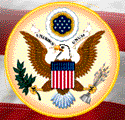 [Presidential Review Directives]
[Presidential Review Directives]
[omitted text]
BACKGROUND
The Clinton Administration is committed to the development of an information superhighway and National Information Infrastructure that depends on a developing synergy between telecommunications and computer technologies. Rapid changes in both the telecommunications and computer industries have blurred the traditional gaps that separated these technologies. The result of these changes has significantly improved both our telecommunications infrastructure and computational capability. At the same time many of the technologies that facilitate rapid implementation of these advanced information systems inhibit lawfully authorized electronic surveillance by government agencies. For example, some advanced telecommunications that form the backbone of the information superhighway also nullify the effectiveness of traditional methods of carrying out court authorized wiretaps. The encryption technologies that can be used to protect privacy and business data can also be used by lawbreakers to prevent the government from obtaining contents of information it is authorized to intercept.
1. [omitted text]
2. What is the impact, including risks and opportunities, of advances in telecommunications services on:
b. [omitted text]
c. privacy and security of personal commercial, and government information in the U.S. and abroad;
d. U.S. commercial competitiveness?
Encryption Technologies
3. [omitted text]
4. What is the impact including risks and opportunities, of advances in encryption technologies on:
b. [omitted text]
c. privacy and security of personal, commercial, and government information in the U.S. and abroad;
d. U.S. commercial competitiveness;
e. the security and reliability of the telecommunications network.
Key-Escrow Technique for Encryption
5. What are the uses, domestic and foreign, of the key-escrow technology developed by the government in software, hardware and telecommunications applications? Assess the relative practicality of voluntary versus mandatory uses of this approach? What are the reactions of industry to this approach? What reactions to this encryption approach might be expected from foreign manufacturers and governments. For domestic and foreign licensing of the technology? What institutional agents are feasible for key-escrow safekeeping?
6. Are there unacceptable risks that the key-escrow technique may be readily disabled when implemented in software encryption products? If so, what other possible solutions might assure authorized government access to information protected by software encryption and still afford reasonable encryption protection to software and end-users?
7. [omitted text]
Export Controls
8. [omitted text]
The following should guide the development of the options: Whether and in what circumstances legislation or other regulation of encryption and advanced telecommunications is warranted; - Whether these interests can be accommodated through (1) cooperative arrangements with manufacturers and telecommunications service providers and those who manufacture and offer encryption services; (2) alternative investigative/collection techniques; (3) technological innovation; (4) international agreements/arrangements; and (5) adjustments to domestic and international standards.
In developing these options, their costs should be provided along with likely reactions of industry, the Congress, foreign manufacturers and governments, and those entities affected by the recommended option. Recommended implementing strategies should be provided.